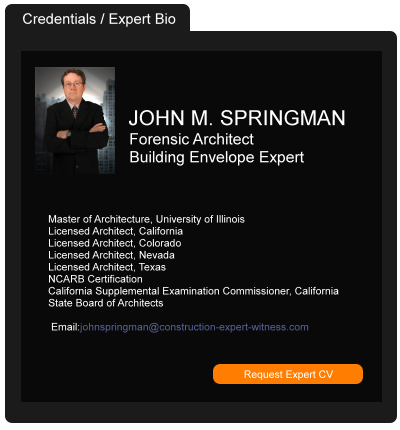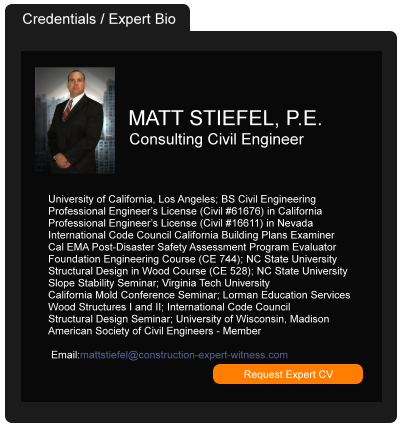How AI Can Become a Design Adviser
October 02, 2018 —
Aarni Heiskanen - AEC BusinessParametrized design software is not a recent invention. This software is based on predetermined, fixed algorithms, leaving most of the work to the designer. Sweco, a leading engineering consultancy, is now exploring how artificial intelligence (AI) could take design automation in the Architecture, Engineering, and Construction industry to the next level.
Read the court decisionRead the full story...Reprinted courtesy of
Aarni Heiskanen, AEC BusinessMr. Heiskanen may be contacted at
aec-business@aepartners.fi
Google’s Biggest Moonshot Is Its Search for a Carbon-Free Future
November 15, 2021 —
Mark Bergen - BloombergGoogle Bay View, the company’s newest campus, consists of three squat buildings nestled near the San Francisco Bay shoreline a few miles east of its headquarters in Mountain View, Calif. The first things visitors notice are the roofs.
They curve down gently from pinched peaks, like circus tents, sloping almost to the ground. Each roof is blanketed with overlapping solar panels that glisten with a brushed metal sheen on the edges. Google calls this design Dragonscale, and indeed it looks as if a mystical beast is curled up by the water in Silicon Valley.
Google envisions its latest campus as the embodiment of a grander ambition to run its operations entirely free of carbon. The company plans to open Bay View in January to “a limited number” of employees, depending on the pandemic. Beneath the buildings, thousands of concrete pillars plunged into the ground will serve as a sort of geothermal battery, storing heat to warm the building and water supply without natural gas. The roof panels were constructed with a unique textured glass to prevent glare and with canopies that emit a soft, glowing light into the spacious atria inside. “We call this the Cathedral of Work,” says Asim Tahir, who oversees energy decisions in Google’s real estate division. He stands by the southern entrance in a hard hat, mask, and safety vest.
Read the court decisionRead the full story...Reprinted courtesy of
Mark Bergen, Bloomberg
Insurance Policy’s “No Voluntary Payment” Clauses Lose Some Bite in Colorado
October 22, 2013 —
Brady Iandiorio — Higgins, Hopkins, McLain & Roswell, LLC.The Colorado Court of Appeals recently handed down an opinion dulling the teeth of the “no voluntary payment” clauses found in many contractors’ insurance policies. In the case of Stresscon Corporation v. Travelers Property Casualty Company of America, 2013 WL 4874352 (Colo. App. 2013), the Court of Appeals found that an insured’s breach of the “no voluntary payment” clause does not always bar the insured from receiving benefits from its insurance company.
In July 2007, at a construction project run by Mortenson (the “GC”), a partially erected building collapsed, killing one worker and gravely injuring another. The collapse was caused by a crane hook pulling a concrete component off of its supports. The GC contracted with Stresscon Corporation (“Stresscon”) to build pre-cast concrete components for the project, and in turn Stresscon hired two sub-subcontractors, RMS and Hardrock (the “Crane Team”) to work together to erect those concrete components. Stresscon and the Crane Team had liability insurance, and Stresscon was insured by Travelers Property Casualty Company of America (“Travelers”).
The accident led to three separate lawsuits: 1) one brought by the deceased worker; 2) one brought by the injured worker; and 3) one brought by the GC against Stresscon claiming it was entitled to contract damages incurred because the project was delayed.
Read the court decisionRead the full story...Reprinted courtesy of
Brady IandiorioBrady Iandiorio can be contacted at
Iandiorio@hhmrlaw.com
Arizona Supreme Court Confirms a Prevailing Homeowner Can Recover Fees on Implied Warranty Claims
August 30, 2017 —
Rick Erickson - Snell & Wilmer Real Estate Litigation BlogOn August 9th, in Sirrah Enterprises, L.L.C. v. Wunderlich, the Arizona Supreme Court settled the question about recovery of attorneys’ fees after prevailing on implied warranty claims against a residential contractor. The simple answer is, yes, a homeowner who prevails on the merits can recover the fees they spent to prove that shoddy construction breached the implied warranty of workmanship and habitability. Why? Because, as Justice Timmer articulated, “[t]he implied warranty is a contract term.” Although implied, the warranty is legally part of the written agreement in which “a residential builder warrants that its work is performed in a workmanlike manner and that the structure is habitable.”
In other words, a claim based on the implied warranty not only arises out of the contract, the claim is actually based on a contract term. Since, in A.R.S. § 12-341.01, Arizona law provides for prevailing parties to recover their fees on claims “arising out of contract” and because the implied warranty is now viewed by the courts as a contract term, homeowners can recover their fees after successfully proving breach of the implied warranty.
Read the court decisionRead the full story...Reprinted courtesy of
Rick Erickson, Snell & WilmerMr Erickson may be contacted at
rerickson@swlaw.com
New Hampshire’s Statute of Repose for Improvements to Real Property Does Not Apply to Product Manufacturers
April 22, 2019 —
Gus Sara - The Subrogation StrategistIn United Services Automobile Association v. Broan-Nutone, LLC, No. 218 2017 CV 01113, [1] the Superior Court of Rockingham County, New Hampshire recently considered whether the eight-year statute of repose for improvements to real property applied to the manufacturer of a ceiling ventilation fan that was installed in the property during its original construction. The court held that New Hampshire’s statute of repose did not apply to the manufacturer because it was not involved in incorporating its product into the property.
In 2012, Chad St. Francis purchased a home in Northwood, New Hampshire. The home was originally constructed in 2008, at which time a Broan-Nutone ceiling ventilation fan was installed in the first-floor bathroom. In 2016, a fire occurred at the home. United Services Automobile Association (USAA) provided property casualty insurance for the home and paid Mr. St. Francis for the damage. In 2017, USAA filed a subrogation lawsuit against Broan-Nutone, alleging that its ceiling fan caused the fire due to a design defect within the product. Broan-Nutone filed a motion for summary judgment on grounds that USAA’s action was barred by New Hampshire’s statute of repose for improvements to real property.
Read the court decisionRead the full story...Reprinted courtesy of
Gus Sara, White and Williams LLPMr. Sara may be contacted at
sarag@whiteandwilliams.com
Contracts and Fraud Don’t Mix (Even for Lawyers!)
August 24, 2020 —
Christopher G. Hill - Construction Law MusingsIn prior posts here at Construction Law Musings, I have discussed how fraud and contracts are often like oil and water. While there are exceptions, these exceptions are few and far between here in Virginia. The reason for the lack of a mix between these two types of claims is the so-called “source of duty” rule. The gist of this rule is that where the reason money is owed from one party to another (the source of the “duty to pay”) is based in the contract, Virginia courts will not allow a fraud claim. The rule was created so that all breaches of contract, claims that are at base a failure to fulfill a prior promise and could, therefore, be considered to be based on a prior “lie,” would not be expanded to turn into tort claims. This rule has been extended to claims that most average people (read, non-lawyers) would consider fraud because there was no intent to fulfill the contract at the time it was signed.
Just so you don’t think that lawyers are exempt from this legal analysis, I point you to a recent case where a law firm sued a construction client of theirs for failure to pay legal fees. In EvansStarrett PLC v. Goode & Preferred General Contracting, the Fairfax County Circuit Court considered a motion by the Plaintiff law firm seeking to add a count of fraud to its breach of contract lawsuit. The Court considered the following facts.
Read the court decisionRead the full story...Reprinted courtesy of
The Law Office of Christopher G. HillMr. Hill may be contacted at
chrisghill@constructionlawva.com
Arizona Is Smart About Water. It Should Stay That Way.
February 19, 2024 —
Mark Gongloff - BloombergYou really have to hand it to Arizona: Even as its population has doubled and it has suffered through a decades long megadrought, the state uses less water today than it did 40 years ago.
This success story is the result of what may be the smartest, most conservative approach to water in the country. But homebuilders want to scrap some key elements of this careful system. It’s a bad idea, especially as the climate changes, making the state’s water supply less reliable. And it’s a cautionary tale for the rest of us as we try to adapt to a warming world.
In 1980, alarmed at watching its precious groundwater disappear amid rapid development, Arizona passed the Groundwater Management Act. The law established the Arizona Department of Water Resources, set up water-management zones around cities and required new housing developments to prove they had access to 100 years’ worth of clean water, among other things.
Read the court decisionRead the full story...Reprinted courtesy of
Mark Gongloff, Bloomberg
Construction Defect Leads to Death, Jury Awards $39 Million
November 27, 2013 —
CDJ STAFFA failure in the installation of a 13-ton concrete panel in Milwaukee County lead to the death of a 15-year-old boy in 201; two others were also injured. A lawsuit over this has concluded with the contractor, Advance Cast Stone, found culpable due to their concealing that the panel was not installed as prescribed. The incident happened at a parking garage operated by the county.
Advanced Cast Stone made the claim that the method they used to secure the panel had been approved by other in the project. The jury awarded $6.3 million to the estate of Jared Kellner, $1.5 million each to the young man who was injured, Eric Wosniki, and his parents. The county was also awarded $6 million for lost revenue in the parking garage and for repairs.
Read the court decisionRead the full story...Reprinted courtesy of


































































